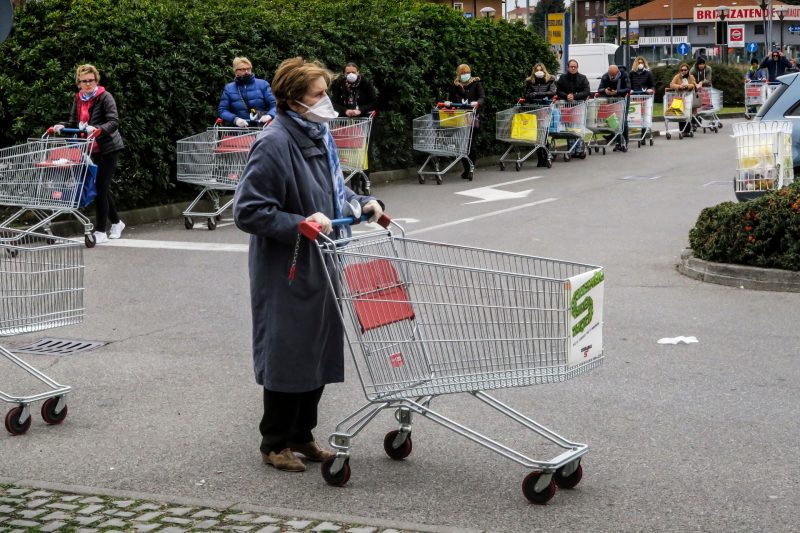Mehdi Shapouri, in an interview with the website of the Strategic Council on Foreign Relations, stated that corona epidemic is one of the complications of globalization: “Before corona, the world had never experienced globalization in such a horrible way.” It was and is believed that globalization has brought societies closer and closer together, and that this process will continue. An important consequence of the corona outbreak is that it disrupts ties and engages people, communities and governments within their own confines.
Corona Caused Major Disruptions in Globalization Chain
He added: “Globalization has diminished the importance of borders, but corona has closed borders and highlighted the status of the frontiers as a symbol of segregation in human-community relations.”Globalization has globalized both the supply chain and the production distribution chain, but corona has created major disruptions in these chains.”
The strategic affairs analyst said that the coronavirus may be weakened or even destroyed against vaccination, but its effects on human-community relations and societies appear to be stable. If the corona disease is defeated, the fear of another corona will no longer allow human beings and societies to be as intertwined as they were in the past, or at least to go beyond the connections and interconnections of the past.
Shapouri continued: “This transformation means a pause or even the end of globalization, which means the fading or disappearance of territorial, social, cultural, economic and political boundaries between societies and governments.” Accordingly, the corona phenomenon is likely to increase the growth of political introversion and the economic protectionism of governments. Meantime, governments will focus more on their internal affairs and plan for situations where they are forced to live without communication or with minimal communication with others.
The faculty member of the Institute for Strategic Studies said that more government focus on domestic issues requires fundamental changes in their policies and priorities that could create a different world than before corona.
Corona Requirements Contrary to Principles of Liberal International Order
“Corona has also created the conditions and requirements for the immediate intervention of governments in their internal affairs to the detriment of individual and social freedoms,” he said. The state of emergency caused by the corona epidemic has created conditions for individuals and communities to call for more government intervention and control, which could eventually lead to the growth of political power. The sum of these developments is contrary to the principles and rules of the liberal international order, including democracy, the free market, and the minimal government that the United States and its allies have worked hard to shape since World War II.
At the same time, Shapouri noted that the basic principles and rules of liberal order were seriously challenged before corona outbreak with the Trump administration coming to power, and his administration’s policies and actions. He added: “Under these conditions the outbreak of the corona virus accelerates the undermining of international liberal order. If the virus continues to spread and Trump is re-elected President of the United States in this year’s polls, the liberal order is likely to face more fundamental challenges.
He stressed: “It seems that the alternative order of the liberal order, apart from what it may look like, which depends on the distribution of capabilities among the main actors of the international system, will be based on the components of ‘power politics’. Unlike liberal order, which is somewhat law-abiding and restricts the use of force, order based on “power politics” is force-oriented, and the threat or use of military force to resolve international disputes is the main basis for such an order. .
Shapouri added: “The basic rule in the order based on power politics is that the powerful do what they can, and the weak have to accept what they can’t change.” The threats of order based on power politics for Iran are far greater than its opportunities. In such an order, the most powerful international actors determine the rules and procedures; the international scene is turned into a game of these powers, and the independence of action and the role of regional powers becomes limited and goes under the shadow of the main powers is the international system.
The strategic affairs expert said: “In periods when such an order prevailed, the interests of the weaker actors have been trampled on or compromised by the main powers.” A clear example of this is the rivalry between the British, Russian and, to some extent, the French colonial powers in Iran in the nineteenth and early twentieth centuries, in which Iran repeatedly becomes the scapegoat to competition and compromise.










0 Comments